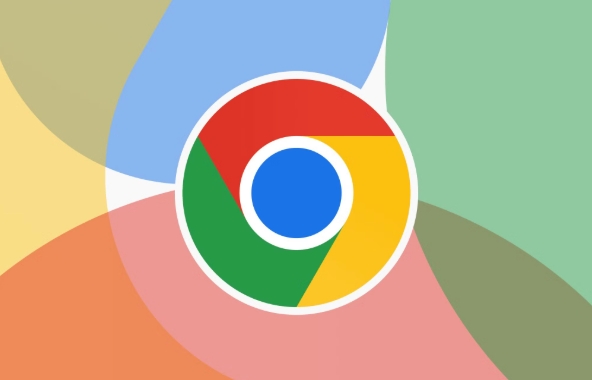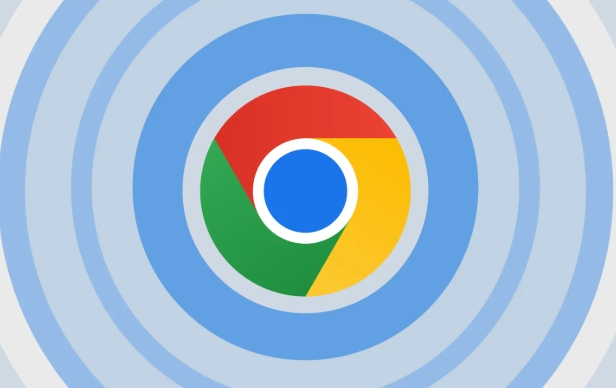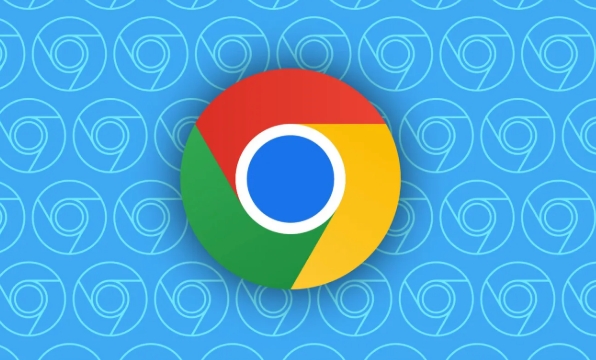How to block pop-ups in chrome
Jul 11, 2025 am 12:53 AMTo block pop-up ads in Chrome browser, you can take the following measures: 1. Turn off pop-up permissions for specific websites, and set "Pop-up" to "Block" through website settings; 2. Enable Chrome's built-in "Pop-up and Redirect" blocking feature, and enable the "Filter obviously invasive ads" option; 3. Install ad blocking plug-ins such as uBlock Origin or AdGuard to block more ads and tracking scripts, although it may slightly affect loading speed. These methods can significantly improve the browsing experience.

The advertising windows pop up in Chrome browsers are indeed quite annoying, especially those pages that pop up automatically, which not only interfere with browsing, but may also affect the online experience. Fortunately, Chrome comes with some settings to help you effectively block these pop-ups.

Website permission settings: directly close pop-up permissions
Chrome allows you to manage pop-up permissions individually for each website. If you find that a website often pops up ads or new windows, you can directly close its pop-up permissions:

- Open this website
- Click the lock icon on the right side of the address bar (or the small icon at the beginning of the URL on the left)
- Select "Website Settings"
- Find the "Pop-up" item and set it to "Block"
In this way, the next time you visit this website, you won’t easily pop up the new window. If you have been disturbed by pop-ups of some websites before, this step is very practical.
Enable Chrome's built-in ad blocking feature
Chrome itself actually has a basic ad blocking mechanism built in, especially before you install the ad blocking extension:

- Open Chrome Settings → Privacy and Security → Website Settings
- Scroll to the bottom to find "Popt and Redirect"
- Make sure this option is on (usually on by default)
In addition, Chrome will also enable the function of "filtering obviously invasive ads" in some areas, such as the large screen-blocking ad bars in news websites. Although pop-ups cannot be completely eliminated, they can block the most annoying batch.
Use ad blocking plug-in to strengthen protection
If the above method is not enough, you can consider installing an ad blocking plugin, such as uBlock Origin or AdGuard . They can not only block pop-up windows, but also block various banner ads, tracking scripts, etc. on the web page:
- Go to the Chrome Web Store to search for plugin name
- Once added to the browser, it will start working by default
- Some plugins also support custom rules, such as releasing ads that you don't dislike.
It should be noted, however, that some plugins may slightly affect web page loading speed, and some websites will detect that you are using ad blocking tools and prompt you to close to continue browsing content.
Basically these are the methods. It is not difficult to set up, but many people may only use the default settings and do not adjust the permissions of the specific website. In fact, it takes a few minutes to check the pop-up permissions of commonly used websites and add a plug-in to make it much more refreshing.
The above is the detailed content of How to block pop-ups in chrome. For more information, please follow other related articles on the PHP Chinese website!

Hot AI Tools

Undress AI Tool
Undress images for free

Undresser.AI Undress
AI-powered app for creating realistic nude photos

AI Clothes Remover
Online AI tool for removing clothes from photos.

Clothoff.io
AI clothes remover

Video Face Swap
Swap faces in any video effortlessly with our completely free AI face swap tool!

Hot Article

Hot Tools

Notepad++7.3.1
Easy-to-use and free code editor

SublimeText3 Chinese version
Chinese version, very easy to use

Zend Studio 13.0.1
Powerful PHP integrated development environment

Dreamweaver CS6
Visual web development tools

SublimeText3 Mac version
God-level code editing software (SublimeText3)

Hot Topics
 How to stop Chrome from updating in the background on Mac
Jul 21, 2025 am 12:41 AM
How to stop Chrome from updating in the background on Mac
Jul 21, 2025 am 12:41 AM
To prevent Chrome from automatically updating on Mac, it can be done by disabling update services, modifying permissions, and restricting network access. 1. Use terminal commands to disable the GoogleSoftwareUpdate daemon to prevent background updates; 2. Modify update directory permissions to prevent Chrome from starting the update process by itself; 3. Restrict Chrome's outbound network connection through system firewall or third-party tools to further eliminate update requests. Using these methods in combination can effectively prevent Chrome from being automatically updated.
 How to fix Chrome's spell checker not working
Jul 20, 2025 am 12:03 AM
How to fix Chrome's spell checker not working
Jul 20, 2025 am 12:03 AM
When Chrome spelling check fails, you can troubleshoot and fix it by following the following steps: 1. Confirm that the "Use Spelling Check" function is enabled and check whether the corresponding language is enabled in the language settings; 2. Adjust the input language order, delete the redundant language, and ensure that the main language enables spelling check; 3. Close possible conflicting extensions, especially syntax or translation plug-ins; 4. Update Chrome to the latest version and check the operating system updates. If it still doesn't work, try resetting Chrome settings.
 How to stop Chrome from automatically opening PDF files
Jul 21, 2025 am 12:09 AM
How to stop Chrome from automatically opening PDF files
Jul 21, 2025 am 12:09 AM
To let Chrome download directly instead of opening it when clicking on the PDF link, 1. Enter chrome://settings/content/pdfDocuments to check "DownloadPDFfilesinsteadofautomatically opening theminChrome"; 2. Check whether there are plug-ins such as Lightpdf or Smallpdf interfering behavior, you can try to disable the test; 3. You can use the developer tools to copy the link and paste the new tag to trigger the download. The above methods can be selected according to the situation.
 How to fix Chrome profile sync getting stuck in setup
Jul 25, 2025 am 01:10 AM
How to fix Chrome profile sync getting stuck in setup
Jul 25, 2025 am 01:10 AM
The problem of Chrome sync stuck can be solved through the following steps: 1. Check the network connection and Google account status to ensure normal access; 2. Log out and log in to the Chrome account again; 3. Clear the synchronized data and restart the browser; 4. Reset Chrome settings; 5. Try the traceless mode or new user profile. Sequentially checking can effectively restore the synchronization function.
 How to fix screen tearing when scrolling in Chrome
Jul 25, 2025 am 12:55 AM
How to fix screen tearing when scrolling in Chrome
Jul 25, 2025 am 12:55 AM
The screen tear occurs when the Chrome browser scrolls, which is usually caused by the out-of-synchronization of rendering and refresh. The solutions are as follows: 1. Ensure that hardware acceleration is enabled, you can manually check the settings and restart the browser; 2. Forcefully enable Compositor and related options to optimize rendering; 3. Check the display refresh rate, use single-screen testing, and enable VSync or adaptive synchronization technology on supported devices; 4. Update the graphics card driver or replace the display interface such as using the DP interface. It is recommended to start the troubleshooting with simple steps and gradually adjust to find the best configuration.
 Chrome keeps opening new tabs by itself
Jul 22, 2025 am 12:22 AM
Chrome keeps opening new tabs by itself
Jul 22, 2025 am 12:22 AM
The problem of Chrome automatically popping up new tabs is usually caused by malicious extensions, advertising scripts, or browser hijacking. The solutions are as follows: 1. Check and uninstall suspicious extensions, especially ad-class plug-ins; 2. Clear browser caches and cookies to eliminate data corruption; 3. Check whether the homepage and default search engine settings have been tampered with and manually corrected; 4. Use antivirus software such as WindowsDefender or Malwarebytes to scan and clear potential malware; 5. Finally, try resetting Chrome settings to restore the default configuration. Troubleshooting in this order can effectively solve most abnormal labeling problems.
 How to fix Chrome opening new windows instead of tabs
Jul 26, 2025 am 01:29 AM
How to fix Chrome opening new windows instead of tabs
Jul 26, 2025 am 01:29 AM
1. Check whether the shortcut attribute has additional parameters and delete it; 2. Clear cache and switch startup settings, or create new user information; 3. Extend the impact and disable the problem plug-in through traceless mode. Chrome pops up new windows instead of tabs usually due to exceptions in shortcut parameters, cache configuration conflicts, or third-party extension interference. Check and adjust the corresponding settings in turn to resolve.
 How to fix Chrome when it's not printing correctly
Jul 26, 2025 am 02:46 AM
How to fix Chrome when it's not printing correctly
Jul 26, 2025 am 02:46 AM
Chrome printing exceptions can be solved in the following ways: 1. Check the printer selection, paper size, orientation, zooming and background graphics settings in the print preview; 2. Try stealth mode to eliminate extended interference and clear cache; 3. Update or reinstall the printer driver, replace the general driver or use the "Print as PDF" method; 4. Finally, you can reset the Chrome settings to restore the default. Most problems can be solved through the first few steps. If they still fail, you can export PDF to print.






